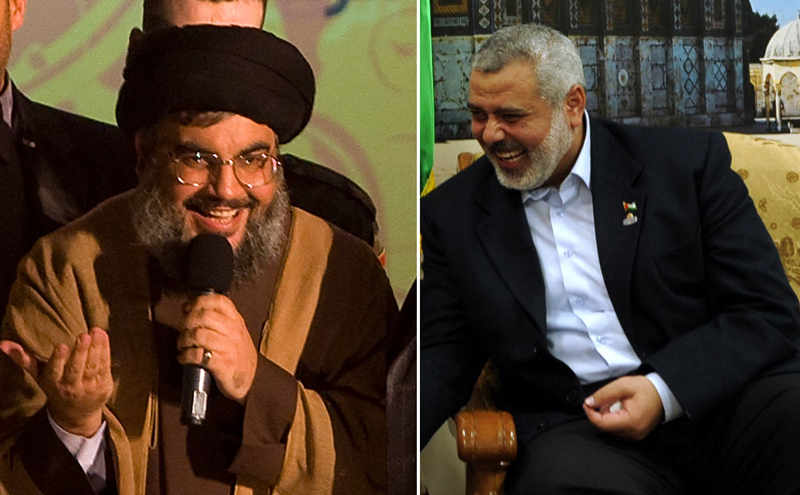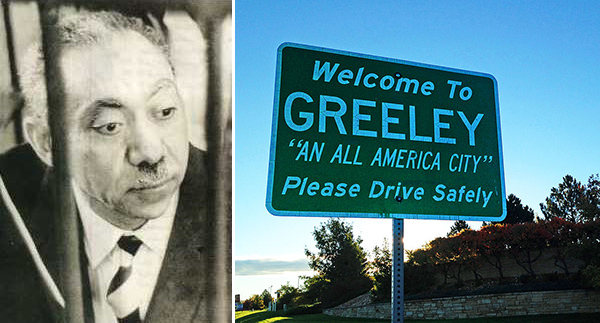|
In this mailing:
- Khaled Abu Toameh: Palestinians: A
State Within a State?
- Majid Rafizadeh: More Jihadists in
the West - Why?
by Khaled Abu Toameh • October 4,
2017 at 5:00 am
- The
"reconciliation" accord they reached in Cairo paves
the way for creating a state within a state in the Gaza Strip.
The Egyptian-sponsored deal does not require Hamas to
dismantle its security forces and armed wing, Ezaddin
Al-Qassam. Nor does the agreement require Hamas to lay down
its weapons or stop amassing weapons and preparing for war.
- This is a very
comfortable situation for Hamas, which has effectively been
absolved of any responsibility toward the civilian population.
Hamas could not have hoped for a better deal. Like Hezbollah
in Lebanon, Hamas in the Gaza Strip will be permitted to
maintain its own security force, while Abbas's government
oversees civilian affairs and pays salaries to civil servants.
- Offloading this
responsibility frees up Hamas to fortify its military
capabilities. Hamas is not being asked to recognize Israel's
right to exist or accept any peace process.

Hezbollah
and Hamas must be laughing their heads off as, under weak and
impotent governments, they see their power grow. Left: Hezbollah
leader Hassan Nasrallah (Paula Bronstein/Getty Images). Right:
Hamas leader Ismail Haniyeh (Muhammad Alostaz/PPM via Getty
Images).
The latest "reconciliation" deal between
the Palestinian Authority (PA) and Hamas brings the Palestinians
closer to creating a state-within-a-state in the Gaza Strip. The PA
and Hamas will now have two separate mini-states of their own in
the Gaza Strip.
This arrangement is similar to the situation in
Lebanon, where Hezbollah maintains a separate mini-state of its own
there.
In state-like fashion, Hezbollah in Lebanon has its
own army and territory. This situation, which has gone on for
decades, has enraged many Lebanese politicians.
Earlier this year, when dozens of masked Hezbollah
militiamen launched a nighttime raid to arrest drug dealers in
Beirut, Lebanese politicians accused their government of giving up
its authority in favor of Hezbollah's "tiny state." The
militiamen belonged to Hezbollah's "social security
department," a police force that operates independently of the
Lebanese security authorities.
by Majid Rafizadeh • October 4,
2017 at 4:00 am
- Western countries
are much more lenient toward the jihadists and Islamists. In
the Middle East, there are severe consequences if they preach
against their own political system. They are permitted to grow
only if they teach antagonism towards the West, Christianity,
Judaism, and Western values.
- In Iran, when the
Islamist party of Ayatollah Khomeini came to power, it did not
embrace all other Islamist and jihadist groups. It supported
and promoted only those jihadist groups that agreed to focus
on promoting two major issues: anti-Americanism and
anti-Semitism. Other Islamist groups, which turned against the
regime itself, were immediately removed from society even
though they were practicing Khomeini's version of radical
Islam.
- The issue becomes:
Where do you draw the line? When a radical imam in the US or
Europe is publicly inciting anti-Semitic, anti-American, and
anti-Western hate, should they be allowed to continue? When
many radical Muslim centers in the West preach jihad and
terrorism, should you still let them enjoy freedom of speech
and assembly? Their preaching is the major factor behind the
increasing terrorism we have currently spreading throughout
the West. If we allow them to continue, the vicious trend will
only ratchet up exponentially.
- One of the
strategies of these groups is to tap into communities where
young people are facing problems -- financial difficulties,
family hardship, maybe psychological issues. The imams
superficially embrace them as fathers, as if embracing his
children. Then, they create explanations for why these young
people are faced with such problems. They teach them that the
problem lies in their society, their government, their own
people, even their own families.

Sayyid
Qutb, a leading member of the Egyptian Muslim Brotherhood in the
1950's and 60's who became an inspiration for Al Qaeda and ISIS,
wrote his inflammatory book, The America that I Have Seen,
after he came to the US. He studied at Colorado State College for
Education in Greeley, among other American schools. (Greeley image
source: Bbean32/Wikimedia Commons)
Growing up under Sharia law and in Islamist schools,
we were taught that the highest level a person can reach is to be a
mujahid. A mujahid is a person that God truly loves.
Once, I dared to ask what exactly the term mujahid meant.
The imam said that a true mujahid is a person who does not
just die defensively for protecting Allah's values. A true mujahid,
one who is most loved by God, is a person who acts offensively,
including through violence, when he or she sees our religious
values are being violated in any part of the world. That person is
a true holy warrior, he explained.
|































No comments:
Post a Comment